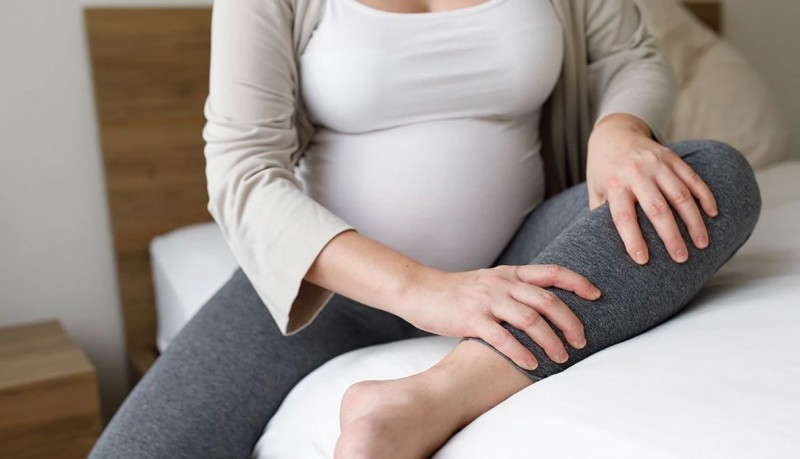
Pregnancy often brings about various discomforts and changes in the body, including pain and cramping in the legs. While this issue is common, it can be particularly distressing for some women. However, with proper care, this problem can be managed effectively. Whether you are pregnant or planning to conceive, it is crucial to be informed about ways to alleviate leg cramps. Here is a comprehensive guide to understanding and managing leg cramps during pregnancy.
Understanding the Causes of Leg Cramps during Pregnancy:
During pregnancy, the occurrence of leg cramps can be attributed to various physiological and hormonal changes that take place within the body. These changes often lead to discomfort and pain in the lower extremities, affecting the muscles, nerves, and circulation in the legs. Understanding the multifaceted causes of leg cramps during pregnancy involves delving into several key factors that contribute to this common issue.
Hormonal Fluctuations: Hormonal changes, particularly an increase in progesterone levels, can impact the muscles and nerves, making pregnant women more susceptible to muscle spasms and cramps. These fluctuations affect the way muscles function and can lead to involuntary contractions and stiffness in the legs, often manifesting as cramping sensations.
Circulatory Changes: Pregnancy is known to bring about significant alterations in blood circulation throughout the body. As the body works to support the growing fetus, the volume of blood in the circulatory system increases, causing pressure on the blood vessels and veins in the lower limbs. This increased pressure can impede proper blood flow and lead to muscle cramps and discomfort in the legs.
Nutritional Deficiencies: In many cases, leg cramps during pregnancy are linked to deficiencies in essential nutrients such as calcium, magnesium, and potassium. The increased demand for these vital minerals to support the development of the fetus often results in a depletion of these nutrients within the mother's body. This deficiency can trigger muscle spasms and cramping in the legs, causing significant discomfort.
Weight Gain and Physical Strain: As the pregnancy progresses, women typically experience weight gain as a natural part of the gestational process. The additional weight, coupled with the structural changes in the body, can exert pressure on the leg muscles and joints, leading to strain and fatigue. The strain on the muscles can increase the likelihood of cramping episodes, especially during periods of physical activity or prolonged periods of standing.
Nerve Compression: The expansion of the uterus during pregnancy can exert pressure on the surrounding nerves, particularly those in the pelvic region and lower back. This compression can disrupt the normal signaling between the nerves and muscles in the legs, leading to irregular muscle contractions and spasms. The resulting leg cramps can be intense and may significantly affect the mobility and comfort of pregnant women.
Dehydration: Inadequate fluid intake during pregnancy can lead to dehydration, affecting the overall muscle function and exacerbating the likelihood of leg cramps. Dehydration can disrupt the balance of electrolytes and minerals in the body, leading to an increased susceptibility to muscle spasms and cramping. Maintaining proper hydration levels is crucial to support muscle health and prevent the onset of cramps.
Tips to Relieve Leg Cramps during Pregnancy:
Leg Stretches for Relief: Before bedtime, try stretching your leg muscles. Stand a short distance away from the wall, with both hands placed on it. Move your right leg behind your left leg, keeping your right knee straight and your right heel on the floor. Hold this position for about 30 seconds, ensuring proper posture throughout. Then, switch legs and repeat the process.
Stay Physically Active: Regular physical activity can help prevent leg cramps during pregnancy. Engage in light exercises or activities that are suitable for your condition. Consulting your gynecologist before starting any exercise regimen is essential.
Stay Hydrated: Keeping yourself hydrated by drinking an adequate amount of water or other hydrating beverages can prevent muscle cramps. Additionally, pale or clear urine is a good indicator of proper hydration.
Ensure Sufficient Calcium Intake: Consuming an adequate amount of calcium during pregnancy can help alleviate leg cramps. Aim for a daily intake of at least 1000 milligrams of calcium.
Consider Magnesium Intake: Studies suggest that magnesium supplements during pregnancy can help relieve leg cramps. Incorporating magnesium-rich foods into your diet can also be beneficial. Consult your doctor before taking any supplements.
Wear Proper Footwear: Due to the weight gain during pregnancy, slight swelling in the legs might occur. Wearing comfortable and supportive shoes is recommended. Additionally, massaging your legs with warm oil, using warm or cold compresses, can help alleviate leg pain.
By following these practical tips and understanding the reasons behind leg cramps during pregnancy, you can effectively manage and alleviate this discomfort, ensuring a smoother pregnancy journey.
The Papaya Paradox: Unveiling the Benefits and Drawbacks of this Tropical Delight
Stress-Busting, Immunity-Boosting: Know The Power of Curry Leaves Tea
Healthy Eating Habits During Festivals: How to Indulge Wisely